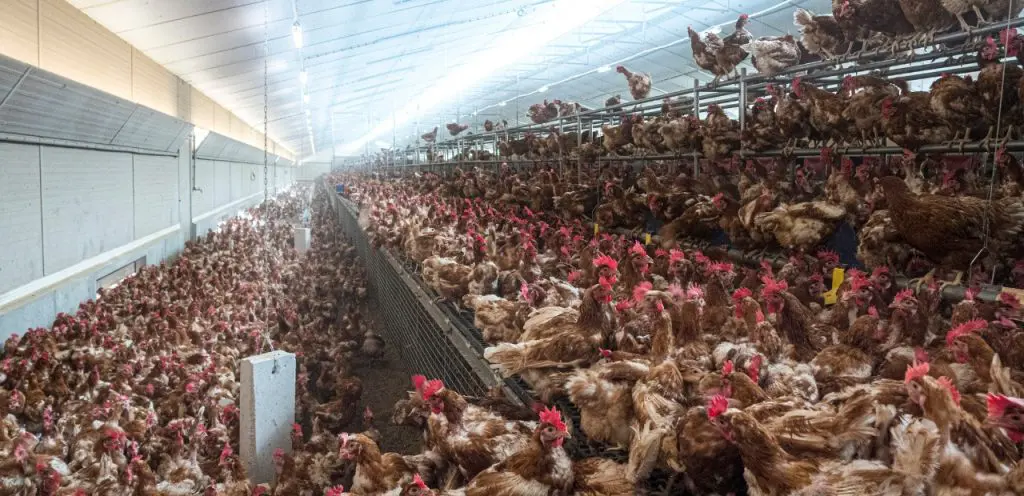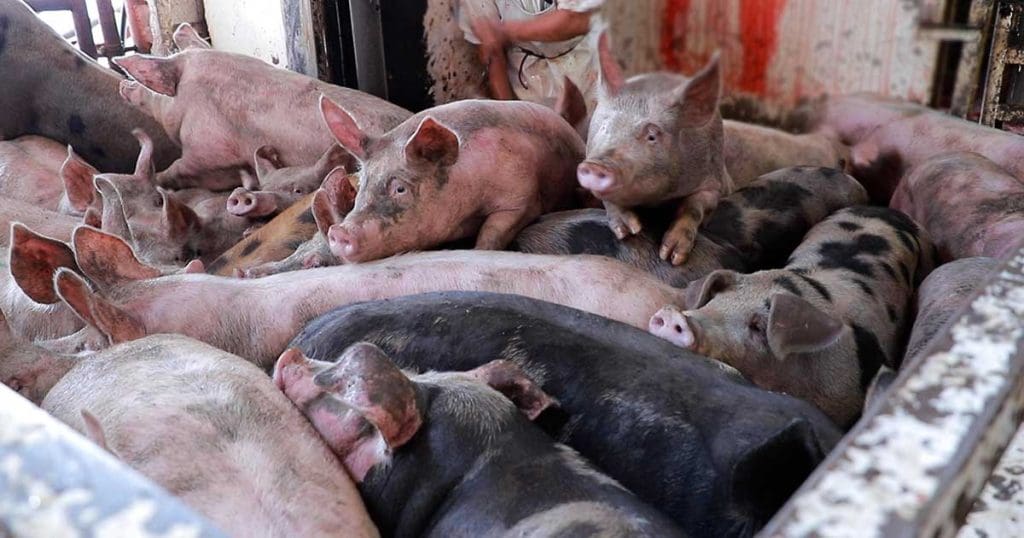Factory farming, a hidden cornerstone of modern food production, operates behind closed doors, concealing the widespread animal cruelty and unethical practices that define it. From overcrowded cages to the overuse of antibiotics and hormones, this industry prioritizes profit at the expense of animal welfare, public health, and environmental sustainability. By exposing these inhumane conditions and challenging the ethics of factory farming, we can empower consumers to make informed choices that support cruelty-free alternatives. Together, we have the power to advocate for transparency, demand change, and foster a more compassionate food system for animals and humans alike
Factory farming is an industry that has long been shrouded in secrecy, but it’s time to confront the cruel realities that lie behind it. This post aims to raise awareness about the inhumane practices and animal cruelty that occur in factory farming. From cramped, unsanitary living conditions to the use of hormones and antibiotics, the hidden horrors of factory farming are truly shocking. It’s essential that we shine a light on these dark practices and challenge the ethics of an industry that prioritizes profit over animal welfare. Together, we can make a difference and promote a more compassionate and sustainable food system.

The Harsh Realities of Factory Farming
Factory farming involves numerous inhumane practices that cause immense suffering to animals.
The cramped, unsanitary conditions in factory farms contribute to the spread of diseases among animals.

Unveiling the Dark Side of Factory Farming
Factory farming prioritizes profit over animal welfare, leading to rampant animal cruelty. Animals are often subjected to harsh and inhumane conditions, suffering throughout their lives.
The use of hormones, antibiotics, and other chemicals in factory farming poses health risks to both animals and humans. These substances are administered to promote growth and prevent diseases, but they can have detrimental effects on the animals and those who consume their products.
Examining the Cruelty Behind Factory Farming
The confinement, mutilation, and overcrowding of animals in factory farms are common forms of cruelty. Animals are often crammed into small, filthy spaces, with little to no room to move or engage in natural behaviors. This not only causes physical discomfort but also leads to severe mental distress.
Factory farming prioritizes efficiency and profit over animal welfare, resulting in the cruel practices of debeaking, tail docking, and castration without anesthesia. These painful procedures are done to prevent aggression or disease spread in the overcrowded conditions of factory farms.
In addition to physical suffering, factory farming poses serious health risks to both animals and humans. Antibiotics are routinely administered to animals to prevent disease outbreaks caused by the unsanitary conditions. This overuse of antibiotics contributes to the spread of antibiotic-resistant bacteria, posing a significant threat to public health.
The use of hormones and growth-promoting substances in factory farming also raises concerns. These substances are used to accelerate animal growth and maximize profitability but can have detrimental effects on animal health and lead to hormone residues in the meat consumed by humans.
Overall, factory farming perpetuates a cycle of cruelty and exploitation, where animals are treated as mere commodities and their suffering is disregarded for the sake of production efficiency.
Understanding the Impacts of Factory Farming on Animals
Factory farming leads to the genetic manipulation and selective breeding of animals, resulting in physical deformities and health issues. Animals are bred to grow larger and faster, often to the detriment of their well-being. This genetic manipulation can lead to problems such as weakened bones, difficulty breathing, and organ failure.
The constant exposure to stressors in factory farms leads to weakened immune systems and increased susceptibility to diseases in animals. The overcrowded and unsanitary conditions create a breeding ground for the spread of diseases. Animals living in close quarters are more likely to contract and transmit infections, increasing the need for antibiotics and contributing to the rise of antibiotic-resistant bacteria.
Moreover, factory farming deprives animals of their natural behaviors and social interactions, causing significant mental distress. Pigs, for example, are highly intelligent and social animals, but in factory farms, they are often confined to small crates without any mental stimulation or social interaction. This confinement and isolation can lead to the development of abnormal behaviors and psychological disorders.
Challenging the Ethics of Factory Farming
Factory farming raises profound ethical questions about the treatment of animals and the responsibility of humans towards them. The practices employed in factory farming prioritize profit over animal welfare, resulting in widespread animal cruelty.
The confinement, mutilation, and overcrowding of animals in factory farms are common forms of cruelty. These practices not only cause immense physical suffering but also deprive animals of their natural behaviors and social interactions, leading to mental distress.
Furthermore, factory farming involves the use of hormones, antibiotics, and other chemicals to maximize productivity. This poses health risks not only to the animals but also to humans who consume these products.
As consumers, we have the power to challenge the unethical practices of factory farming. By supporting alternative, more humane farming methods, such as organic or free-range farming, we can promote a food system that values animal welfare and ethical practices.
Taking a Stand Against Inhumane Factory Farming Practices
Individuals and organizations can make a difference by advocating for stricter regulations and laws to protect animals from the cruelties of factory farming.
Supporting cruelty-free and sustainable farming practices promotes a more compassionate and environmentally friendly food system.
Shining a Light on the Hidden Horrors of Factory Farming
Factory farming thrives on secrecy and lack of transparency, making it crucial to expose the hidden horrors and educate the public.
Documentaries and undercover investigations have been instrumental in revealing the true extent of animal cruelty in factory farming.

Conclusion
Factory farming is a cruel and inhumane industry that prioritizes profit over animal welfare. The harsh realities of factory farming include cramped and unsanitary conditions, rampant animal cruelty, and the use of harmful chemicals. Animals in factory farms are subjected to confinement, mutilation, and overcrowding, leading to physical deformities and mental distress. Additionally, the constant exposure to stressors weakens their immune systems and makes them vulnerable to diseases. The ethics of factory farming raise important questions about our responsibility towards animals, but consumers have the power to support more humane farming practices. By advocating for stricter regulations and laws, and supporting cruelty-free and sustainable farming, we can make a difference. It is crucial to shine a light on the hidden horrors of factory farming and educate the public about the true cost of their food choices. Together, we can create a more compassionate and environmentally friendly food system.

4.2/5 - (15 votes)



